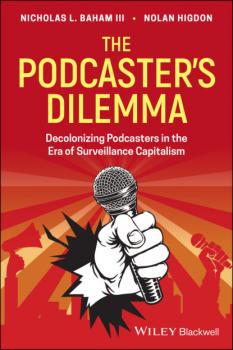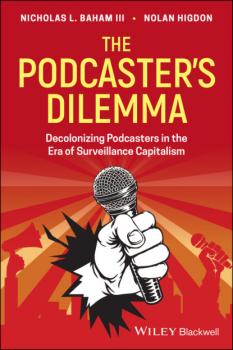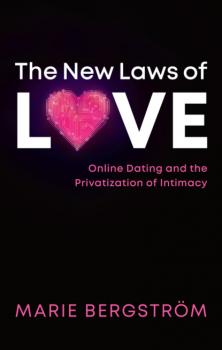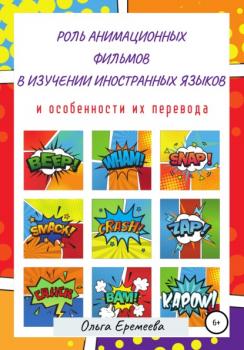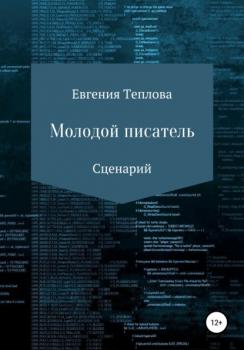Кинематограф, театр
Различные книги в жанре Кинематограф, театрThe Podcaster's Dilemma
A fascinating exploration of modern podcasting as a tool for decolonization In The Podcaster's Dilemma: Decolonizing Podcasters in the Era of Surveillance Capitalism , Drs. Nolan Higdon and Nicholas Baham III connect contemporary podcasting to the broader history of the use of radio technology in the service of anti-colonial struggle and revolution. By organizing the book’s analysis of decolonization through podcasting via three distinct activities—interrogation and critique, counter-narrative, and call to action—the authors create a lens through which they analyze and evaluate the decolonizing potential of new podcasts. The book also critiques the threat to the decolonizing efforts of some modern podcasts by the growing phenomena of surveillance capitalism and the emerging podcast oligopoly. The Podcaster's Dilemma reveals both potential and challenges in the podcasting space as podcasters struggle to put forward insightful new narratives funded by anti-capitalist models. This important book also includes: A thorough introduction to the podcasters profiled in the book and an examination of how they’re using podcasts to decolonize themselves from colonial mentalities Practical discussions of how the profiled podcasters interrogate and critique the veracity of neoliberal, racist, imperialist, patriarchal, heterosexist, classist, and ableist white-centered ideologies Comprehensive explorations of the counter-narrative production phase of a decolonizing podcaster’s process In-depth treatments of the community activism created by decolonizing podcasts The Podcaster's Dilemma: Decolonizing Podcasters in the Era of Surveillance Capitalism is an indispensable new resource for critical media, communications, ethnic studies, and political science scholars, as well as undergraduate and graduate students. It is also perfect for anyone interested in the broad expansion of intersectional voices in dialogue about everything from political organizing to plant-based diets.
The New Laws of Love
Online dating has become a widespread feature of modern social life. In less than two decades, seeking partners through commercial intermediaries went from being a marginal and stigmatized practice to being a common activity. How can we explain this rapid change and what does it tell us about the changing nature of love and sexuality? In contrast to those who praise online dating as a democratization of love and those who condemn it as a commodification of intimacy, this book tells a different story about how and why online dating became big. The key to understanding the growing prevalence of digital dating lies in what Marie Bergström calls “the privatization of intimacy.” Online dating takes courtship from the public to the private sphere and makes it a domestic and individual practice. Unlike courtship in traditional settings such as school, work, and gatherings of family and friends, online dating makes a clear distinction between social and sexual sociability and renders dating much more discrete. Apparently banal, this privatizing feature is fundamental for understanding both the success and the nature of digital matchmaking. Bergström also sheds light on the persisting inequalities of intimate life, showing that online dating is neither free nor fair: it has its winners and losers and it differs significantly according to gender, age and social class. Drawing on a wide range of empirical material, this book challenges what we think we know about online dating and gives us a new understanding of who, why, and how people go online to seek sex and love.
Острые козырьки. Иллюстрированная история создания
Уникальный путеводитель по съемочной площадке культового сериала, который позволит погрузиться в его непередаваемую атмосферу! Вы узнаете, какие реальные события легли в основу сюжета и почему создатели решили экранизировать именно эту историю; что думают о своих персонажах актеры; кто создавал костюмы и подбирал музыку и многое другое. Обо всем этом вам расскажут непосредственно создатель сериала Стивен Найт, актеры Киллиан Мерфи, Пол Андерсон, Хелен Маккрори, Софи Ранд, а также художник-постановщик, звукорежиссер, костюмер и многие другие.
Китай на киноэкране
В издании рассказывается о развитии и изменениях в китайском кинематографе за последнее столетие и приводятся свидетельства неукротимого духа китайского народа. Кинематографическое искусство – словно зеркало, отражающее разные аспекты жизни в обществе, а также душевное состояние людей. Обзор китайских фильмов позволит читателю познакомиться с жизнью китайцев, их стремлениями и нравами. В формате PDF A4 сохранен издательский макет книги.
От «Акиры» до «Ходячего замка». Как японская анимация перевернула мировой кинематограф
В 2003 году картина «Унесенные призраками» Хаяо Миядзаки получила премию «Оскар». Это событие стало поворотной точкой для мира киноискусства: именитая награда подтвердила, что аниме – гораздо больше, чем просто детские мультфильмы. За красочными картинками и несложными (на первый взгляд) сюжетами зачастую спрятаны серьезные темы и даже глобальные вопросы человечества. От феминизма до защиты окружающей среды, от национальной идентификации до познания самого себя как личности – аниме затрагивает самые разные проблемы нашей реальности, проецируя их на реальность вымышленную. В книге «От “Акиры” до “Ходячего замка”» Сюзан Нейпир, автор нашумевшего издания «Волшебные миры Хаяо Миядзаки», отвечает на множество вопросов, которые касаются создания и истории современной японской анимации. Вам выпала потрясающая возможность узнать, как жанр аниме перевернул мировой кинематограф, установив в нём свои законы и покорив сердца миллионов зрителей.
Роль анимационных фильмов в изучении иностранных языков и особенности их перевода
Книга содержит авторский взгляд на роль анимации в современном мире. В книге много веселых примеров из практики, которые заставят вас улыбнуться. Вы не представляете сколько нюансов есть в переводе с английского на русский или испанский! Интересная и легкая в прочтении она будет полезна учащимся школ (для подготовки интересных сообщений), студентам кинематографических факультетов, лингвистам, всем, кому нравится анимация
Молодой писатель
Короткометражный сценарий. «Слава не нужна, хочу изменить мир к лучшему», – заявил незнакомцу молодой талантливый писатель, а тот предложил сделать его книгу бестселлером, правда, под собственным именем. Отречься от высоких слов или же проститься со своим детищем?..
